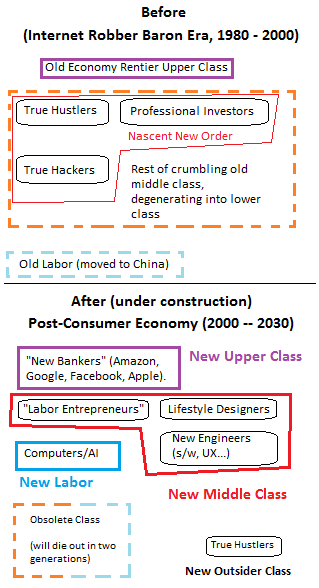Regarding class issues and the new dotcom era discussed in previous posts, here is a depressing chart from Forbes depicting the current state of things, at least in the tech sector:

The article's thesis is "entrepreneurs are the new labor" and while we needn't shed a tear for the fallen strivers who will never be the bad bosses of tomorrow, it helps to have a diagram.
Re: the New Museum's plunge into incubation madness, one might ask: where does an art museum fit in this scheme? And do artists count as "true hustlers"? OK, let's not go there.

